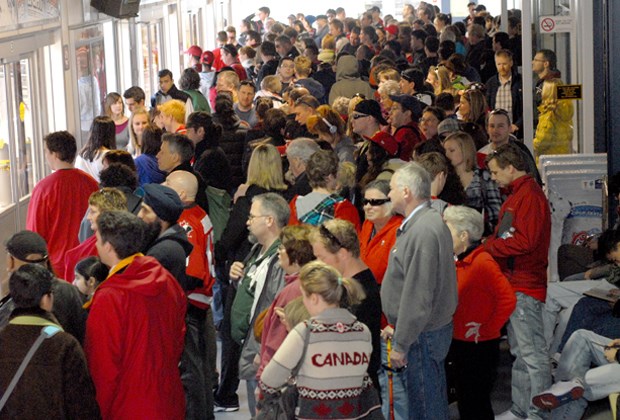The province has budged on the date for a referendum on TransLink's future priorities and handed back some decisionmaking powers it wrested from the Lower Mainland's mayors six years ago.
Transportation Minister Todd Stone announced the changes aimed at breaking the deadlock between the province and TransLink mayors' council last week.
Stone has given the mayors until June 30, 2015, to come up with a detailed vision for TransLink including specific project priorities, phasing and costs, and pushed back a referendum for voters to decide what, if any, new funding sources should pay for the plan.
Beyond increased bus service across the Lower Mainland and new bridges, Surrey is seeking light rail lines and Vancouver has asked for a subway line along Broadway to the University of British Columbia, both of which would cost billions.
However, without opening up new funding sources like a vehicle levy, road pricing, new bridge tolls or a Lower Mainland sales tax dedicated to TransLink costs, funding those projects will have to come from higher property taxes, gas taxes or transit fares, all of which have been maxed out, the mayors argue.
"Our position in government is clear. If the people of Metro Vancouver are being asked to pay new taxes or fees for new services put forward by the mayors' council, then taxpayers must have a say," Stone said in a press conference.
To help spur the mayors to that end, Stone said he will introduce legislation that puts long-term project planning back in the hands of the mayors after the province reduced them to an advisory role and giving the decision-making power to an appointed board in 2008.
"I believe that this is real change that places more authority in the hands of the mayors' council. This is indeed what the mayors' council has been asking for. This is what we are offering," Stone said in a press conference.
"In turn, I challenge the mayors' council to define a regional transportation vision with priorities and costs, to work with government as the council considers funding sources and finalizes a referendum question, to publicly advocate for the success of a referendum that will support the region's objectives for the decades to come."
While the announcements from last week are cause for "guarded optimism," they still leave a lot of unanswered questions, said District of North Vancouver Mayor Richard Walton, who also serves as chairman of the mayors' council.
"There's certainly some moves in the right direction but a tremendous amount of the detail is not in the (minister's) letter," Walton said.
Stone has not made it clear to the mayors which new sources of funding would even be on the table for a referendum. The mayors have asked for a vehicle levy three times in the last 15 years and been denied, he noted.
"If it comes down to that, all we can really do is try to focus on getting some more buses on the road in all of our communities to catch up on what we've lost in the last three or four years in service levels," Walton said.
While getting a unified TransLink plan in place is a real possibility, Walton also took exception to the ongoing line from Stone that a lack of progress has been the fault of the mayors.
"Six years ago, we were removed from that dialogue by the legislation that put an appointed board in place," Walton said.
"The messaging over the last few months is we haven't been able to get our act together but the reality is we've never been given a forum or responsibility to do that.
When it comes to the North Shore's priorities for TransLink, Walton said getting a third SeaBus on the water, upgrading the Phibbs Exchange and Lonsdale Quay bus loop and getting more buses across the North Shore are at the top of the list.
"Those are all fairly simple things but they all cost money and until TransLink gets additional funds from whatever source, we're stuck with those being our priorities and no way of implementing them," he said.
Stone and the mayors' council are expected to meet on Friday.



